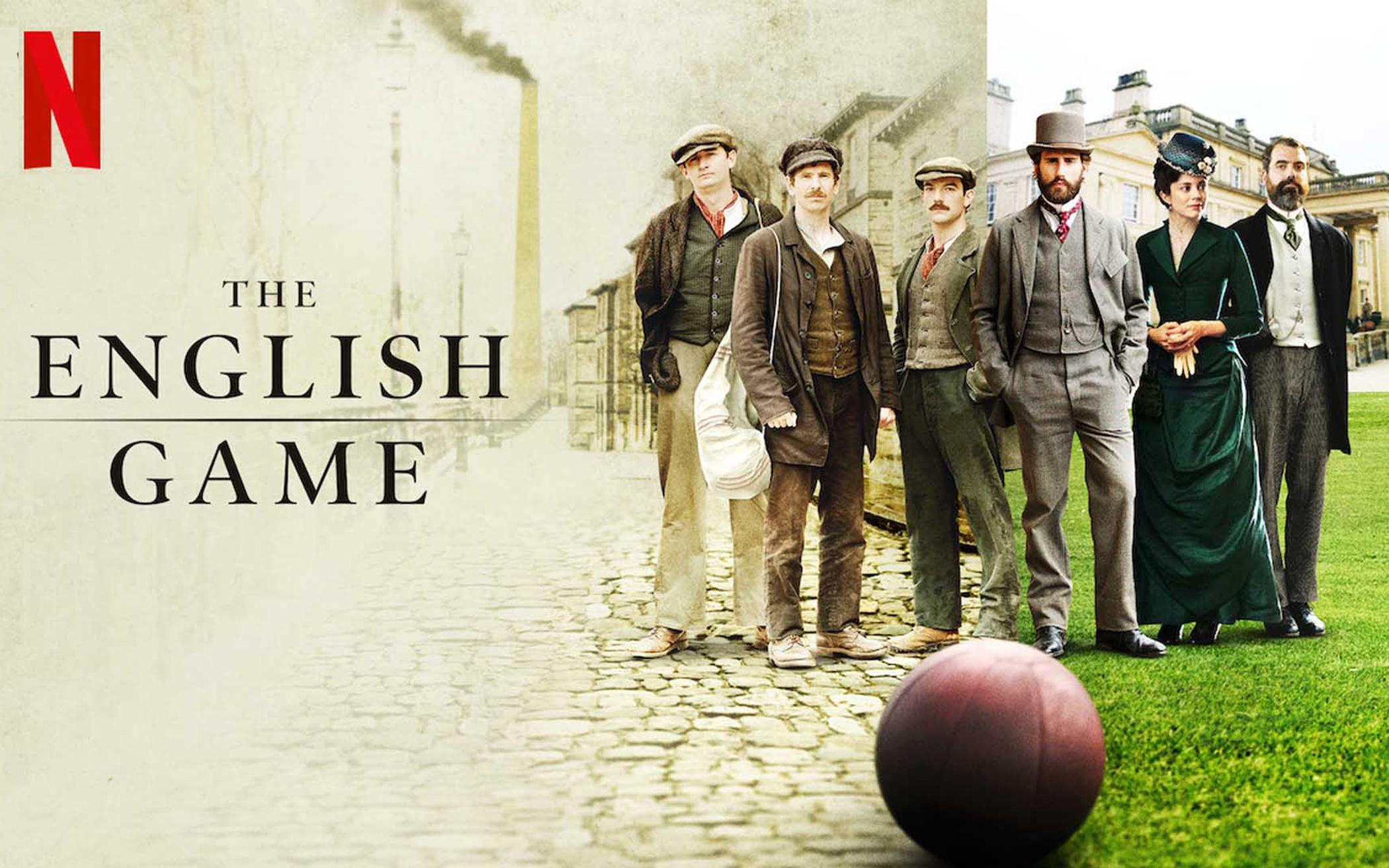What happens when you take a fancy British drama and you cross it with a feel-good sports movie? Well, you have The English Game, a Netflix series developed by Julian Fellowes, the man behind Downton Abbey, the series that chronicled the trials and tribulations of an aristocratic family and its servants during the early 20th-century.
In The English Game, the setting is the 1870s at the height of the Victorian era, when wealthy noblemen, educated at posh schools like Eton, controlled the economy and football (also known as soccer), a game meant for “gentlemen.” But workers and industrialists challenge the elite’s control of the economy and the game.
At the beginning of this six-part series, we encounter James Walsh (Craig Parkinson), the scrappy owner of a textile mill in Darwen, Lancashire, in northwest England. Walsh has a plan—he is determined to beat the Old Etonians, an old-school soccer club headed by Arthur Kinnaird (Edward Holcroft), son of a most comfortably wealthy banker. To do so, Walsh has lured Fergus Suter (Kevin Guthrie), a star player in Glasgow, Scotland, to play for Darwen’s team in the national finals against Kinnaird.
Suter’s arrival challenges both teams to their core. First, Suter “the shooter” gets Darwen to adopt a modern passing game, instead of barreling down the pitch like an elementary school team. Second, Walsh is secretly paying Suter to play, and so threatens the amateur basis of the sport. Kinnaird and his Old Etonians end up playing in a rather ungentlemanly fashion on and off the pitch, squashing Darwen’s hopes, at least initially.
The series depiction of the way Suter, Walsh, and Kinnaird, all historical figures, transformed football is fascinating, even if Julian Fellowes and his screenwriting team apparently dribbled around the facts to create a better story.
Fans of Downton Abbey, do not worry. While you do see a good share of heated football play, most of the time you can enjoy top-notch British actors dressed in fabulous clothing and conversing at elaborate dinner parties as footmen stand at ready to keep the wine glasses full. Even the poor mill workers in Darwen seem very put together as they enjoy a pint at the charming local pub.
Aside from such typical costume drama eye-candy, the series manages to tackle various social issues of the time, most notably the growing struggle between poorly paid factory workers and selfish mill owners. The series also depicts the difficulties faced by both poor and aristocratic women, caught in a society where they had very little freedom.
In terms of emotional drama, Kinnaird and Suter must learn to stand up to their distant fathers and rebuild the relationships with the women they love. These opposing players also learn to work together, despite their social differences, to build the future of a bright and beautiful English game. It should be noted that Fellowes is clever enough to hint at the problems professionalism would bring, with the richest team owner effectively buying the best team.
While watching The English Game, I did miss the snappy dialogue of Downton Abbey and looked for a younger Maggie Smith to appear at some point in the stands and offer a zinger about men chasing after a ball. And yet, this series is remarkably heart-warming for the modern, streaming era. In short, The English Game is like a warm cup of tea that can perk you up, as you watch fierce rivals show honor and good sportsmanship. (Netflix, Rated TV-14 for language, smoking)
About the Author
Otto Selles teaches French at Calvin College, Grand Rapids, Mich., and attends Neland Avenue Christian Reformed Church in Grand Rapids.

